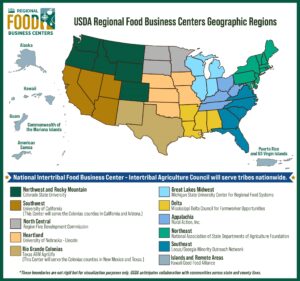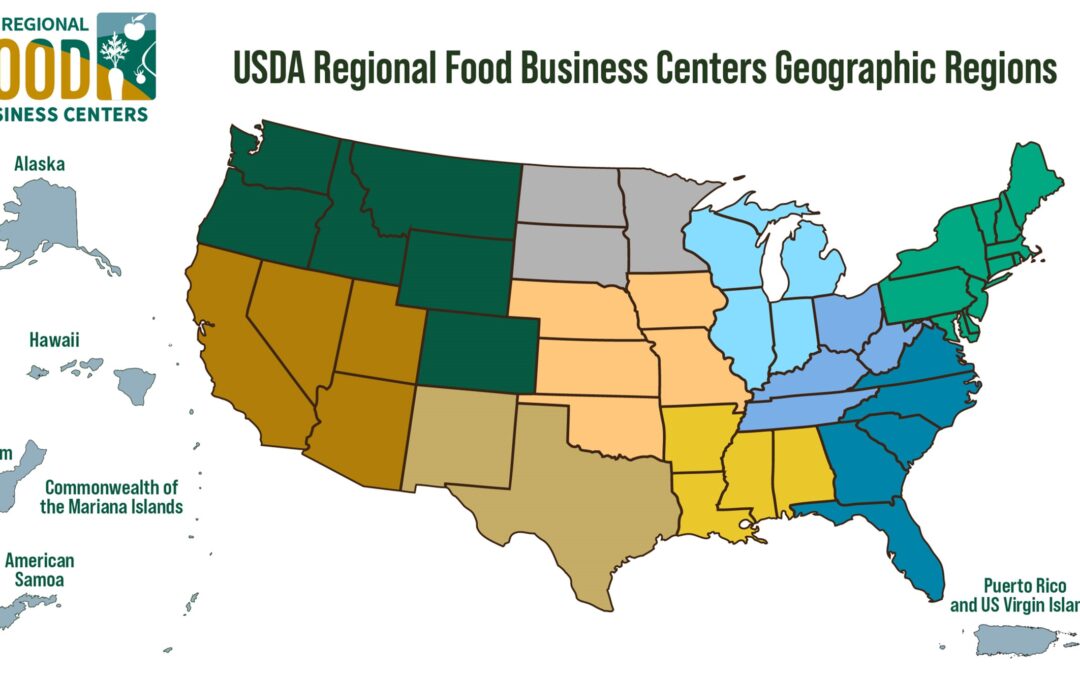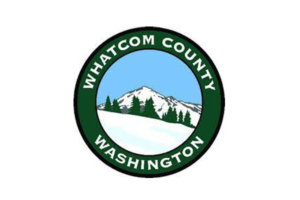The USDA Agricultural Marketing Service (AMS) has launched an innovative initiative: the Regional Food Business Centers Program. This program aims to develop resilient, diverse, and competitive food systems across the United States. In fall 2022, the USDA selected 12 agencies to lead this ambitious endeavor, focusing on connecting producers to supply chains, providing technical support, and investing in underserved communities.
 What sets this program apart is its potential to truly reflect regional diversity. Each Regional Food Center has the flexibility to conduct assessments and local outreach, identifying region-specific priorities that address the unique needs and opportunities within their market environment. While the core elements of each center are standardized, the leadership for each center was selected through a competitive grant process, resulting in some variability in approach and timeline from region to region. This adaptability allows the centers to respond effectively to changing needs and opportunities over the course of the program. Details and contact information for each region can be viewed by clicking the inset graphic and on the program website.
What sets this program apart is its potential to truly reflect regional diversity. Each Regional Food Center has the flexibility to conduct assessments and local outreach, identifying region-specific priorities that address the unique needs and opportunities within their market environment. While the core elements of each center are standardized, the leadership for each center was selected through a competitive grant process, resulting in some variability in approach and timeline from region to region. This adaptability allows the centers to respond effectively to changing needs and opportunities over the course of the program. Details and contact information for each region can be viewed by clicking the inset graphic and on the program website.
The Role of Regional Food Business Centers
The USDA has invested a substantial $360 million in total to establish 12 Regional Food Business Centers (RFBCs). These centers have three primary responsibilities:
- Coordination: RFBCs will serve as regional hubs, engaging stakeholders and partners to develop broader supply chains. They will place particular emphasis on including underserved communities and businesses in these networks.
- Technical Assistance: The centers will provide specialized business support to address barriers faced by small and mid-sized food and farm businesses. This assistance aims to help these enterprises overcome challenges and thrive in their local markets.
- Capacity Building: RFBCs will offer financial assistance through business builder subawards. These will fund projects focused on regional needs and support businesses working towards expansion and other investments.
Focus on Underserved Communities
A key priority of the Regional Food Business Centers Program is supporting underserved and marginalized communities. Here’s how the program addresses this crucial aspect:
- Targeted Investment: The centers will direct resources and support specifically to underserved and tribal communities.
- Community Consultation: RFBCs will consult with members of communities and organizations that serve historically underrepresented groups. This outreach extends to communities that have been underserved or subject to discrimination in federal policies and programs.
- Data-Driven Approach: Centers will gather data and conduct analyses to measure and determine ways to advance equity. This work aims to address barriers to full participation in programming for historically underserved communities.
- Tailored Strategies: Each center’s work plan includes strategies for meaningfully engaging historically underserved communities. Many centers have dedicated technical assistance providers and outreach liaisons to engage with underserved communities and in geographic priority areas.
- National Intertribal Support: The National Intertribal Food Business Center serves American Indian and Alaska Native communities nationwide, ensuring these communities receive specialized support.
Business Builder Grant Program
A cornerstone of the Regional Food Business Centers’ capacity-building efforts is the Business Builder award. This innovative program provides substantial financial support to bolster local food systems and agricultural enterprises by awarding one-time grants up to $100,000 to eligible small and mid-sized farms and food businesses.
The Business Builder awards can support a variety of activities, including:
- Staff time
- Business planning activities
- Software implementation
- Purchase of specialized equipment for food safety, processing, and/or packaging
- Value chain and supply chain coordination and innovation
- Product development
- Marketing initiatives
Due dates and application cycles vary by region. To discover more about each Center’s award program, including current program status and application details, visit the official USDA Business Builder Grant Status website.
Remarks from New Venture Advisors
We are thrilled about the opportunities that the USDA Regional Food Business Centers Program presents for our clients and the broader food system community. This innovative initiative aligns perfectly with our mission to support and strengthen local and regional food systems.
The program’s comprehensive approach offers a wide range of support that can significantly benefit our clients. It can fund crucial planning activities such as feasibility studies, business plans, and capital campaign development. Moreover, it serves as a powerful catalyst for implementing these planning activities, turning well-crafted strategies into tangible realities.
As food system consultants, we are excited to guide our clients through the process of engaging with their regional centers and maximizing the benefits of this program. We believe that the USDA Regional Food Business Centers Program represents a significant step forward in creating more resilient, equitable, and sustainable food systems across the United States.
We encourage all our clients and partners to explore how they can participate in and benefit from this groundbreaking initiative. Together, we can seize this opportunity to build stronger, more vibrant local food economies that nourish our communities and support our farmers and food businesses.
We will continue to work closely with the Regional Food Business Centers to help our clients navigate this exciting new landscape in food system development.
Image: USDA



